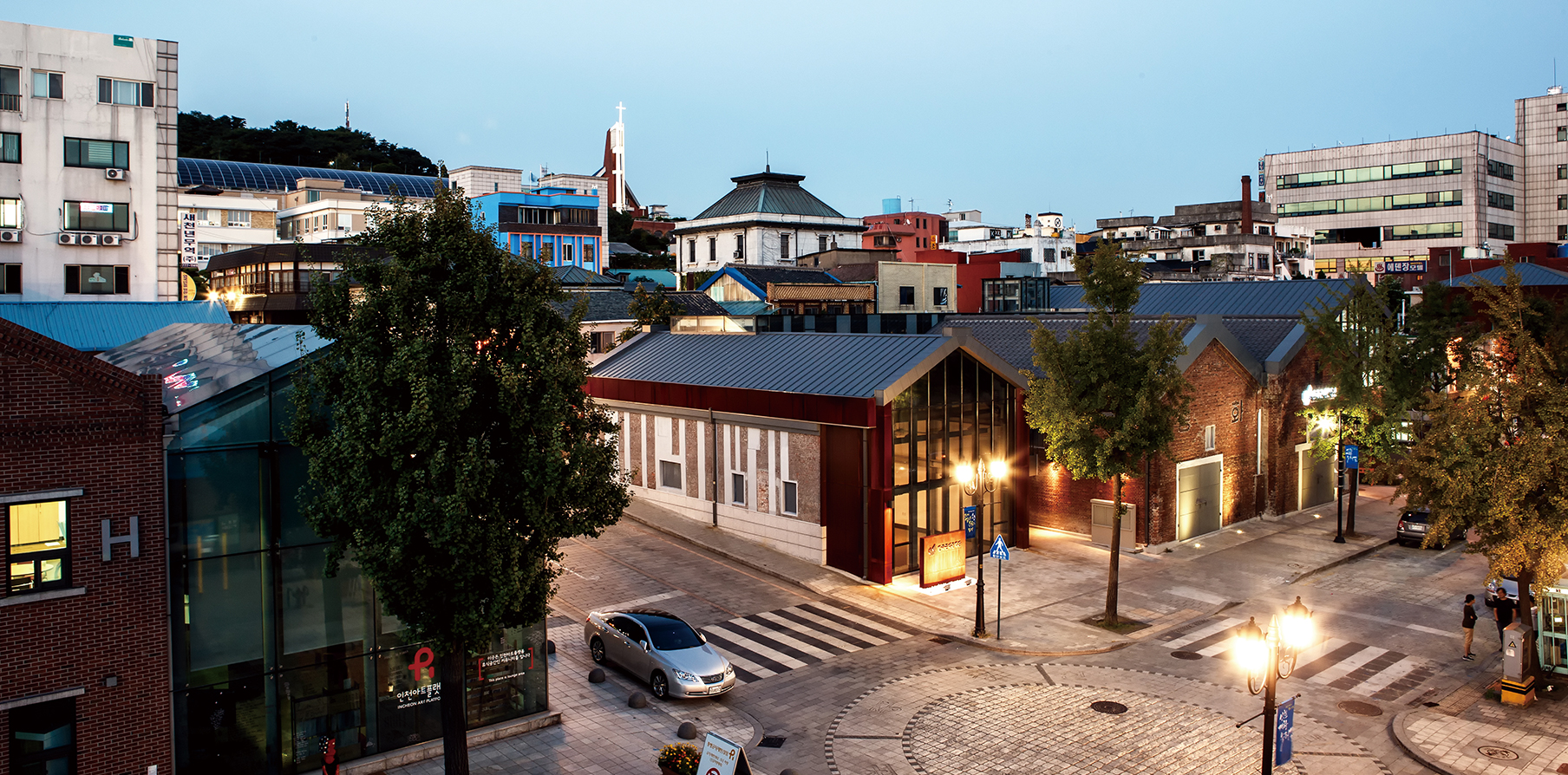Spotlight
Pen-etrating Prose
4 Modern Literature Spots
True to the nation’s rugged history, the birth and preservation of many works of modern Korean literature saw no smooth ride. Many writers led lives of torment and tragedy but because they persisted in their craft, their works not only earned them lasting acclaim, but also offered strength and pride to Koreans up to the present day.
Written by • Kim Jane
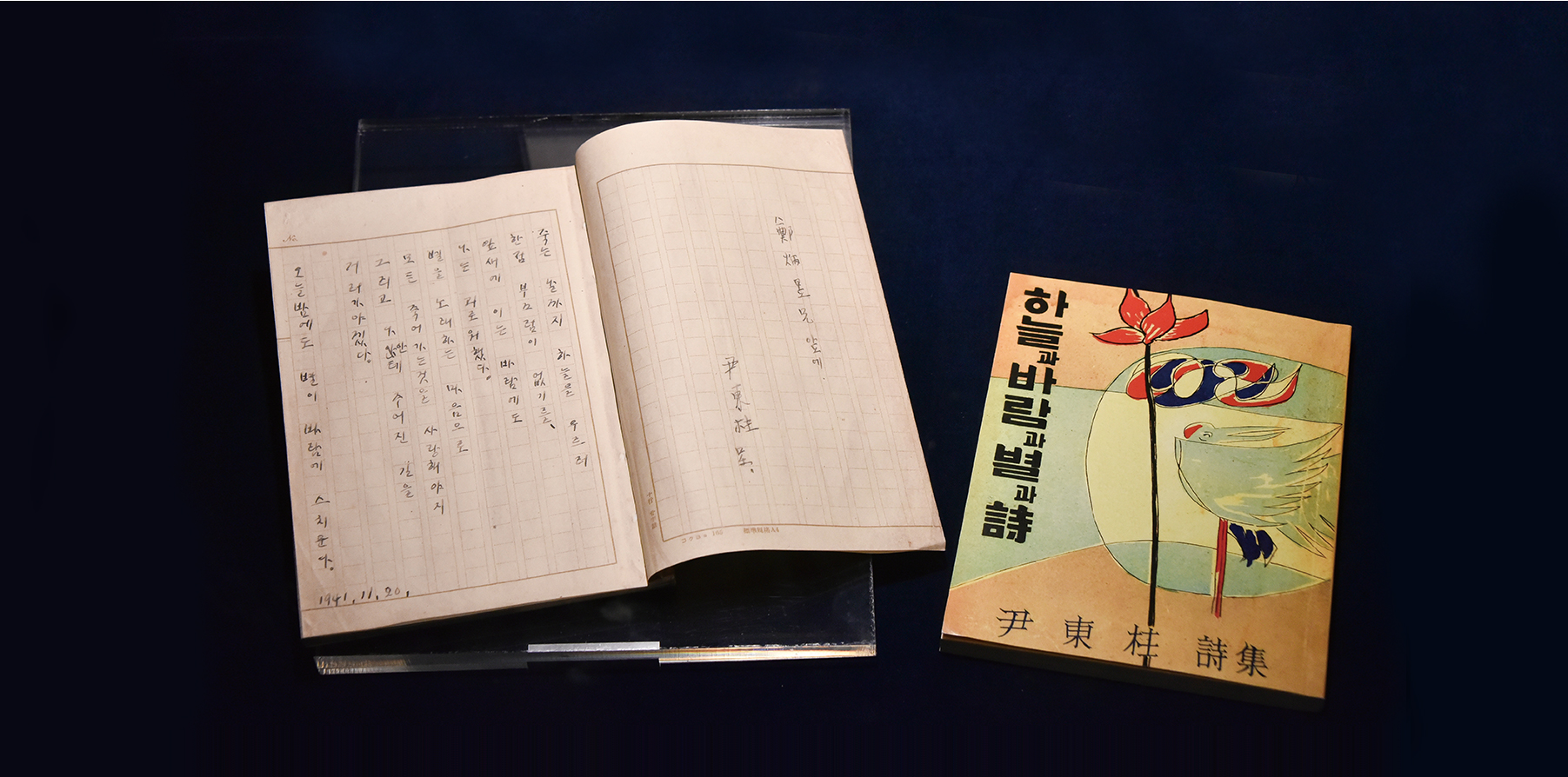
© Jongno Foundation for Arts & Culture
Yun Dong-ju Literature House
The Jongno Foundation for Arts and Culture operates Yun Dong-ju Literature House, for which construction was started in 2009 and opened in 2012 by Seoul’s Jongno-gu District. The house is named after the poet and martyr who epitomized Korea’s spirit of resistance against imperial Japan. At age 27, he died while detained on charges of being involved in anti-Japanese movements.
Built on a refurbished system of pressurized water supply and dilapidated water tanks, the house is a case study in the city’s architectural regeneration. In addition to winning national architectural awards, it was designated by the Ministry of Patriots and Veterans Affairs as a memorial facility in 2015.
Exhibiting handwritten manuscripts and personal items of the poet, the house is one of the many ways his memory is etched into the national consciousness. Compulsory K-12 educational curricula feature his poems, and in pop culture, the 2016 biopic “Dongju: The Portrait of a Poet,” the 2014 biographical novel “The Investigation” and the 2012 musical “Yun Dong-ju Shoots the Moon” are among works honoring him. Yun was posthumously awarded the Independence Medal of Honor for National Foundation in 1990.
Though multilingual support is limited, the surrounding cozy park and hillside trails (Yun Dong-ju Hill, aka “Poet’s Hill”) leading to Inwangsan Mountain offer nature’s delights.
- 119, Changuimun-ro, Jongno-gu, Seoul
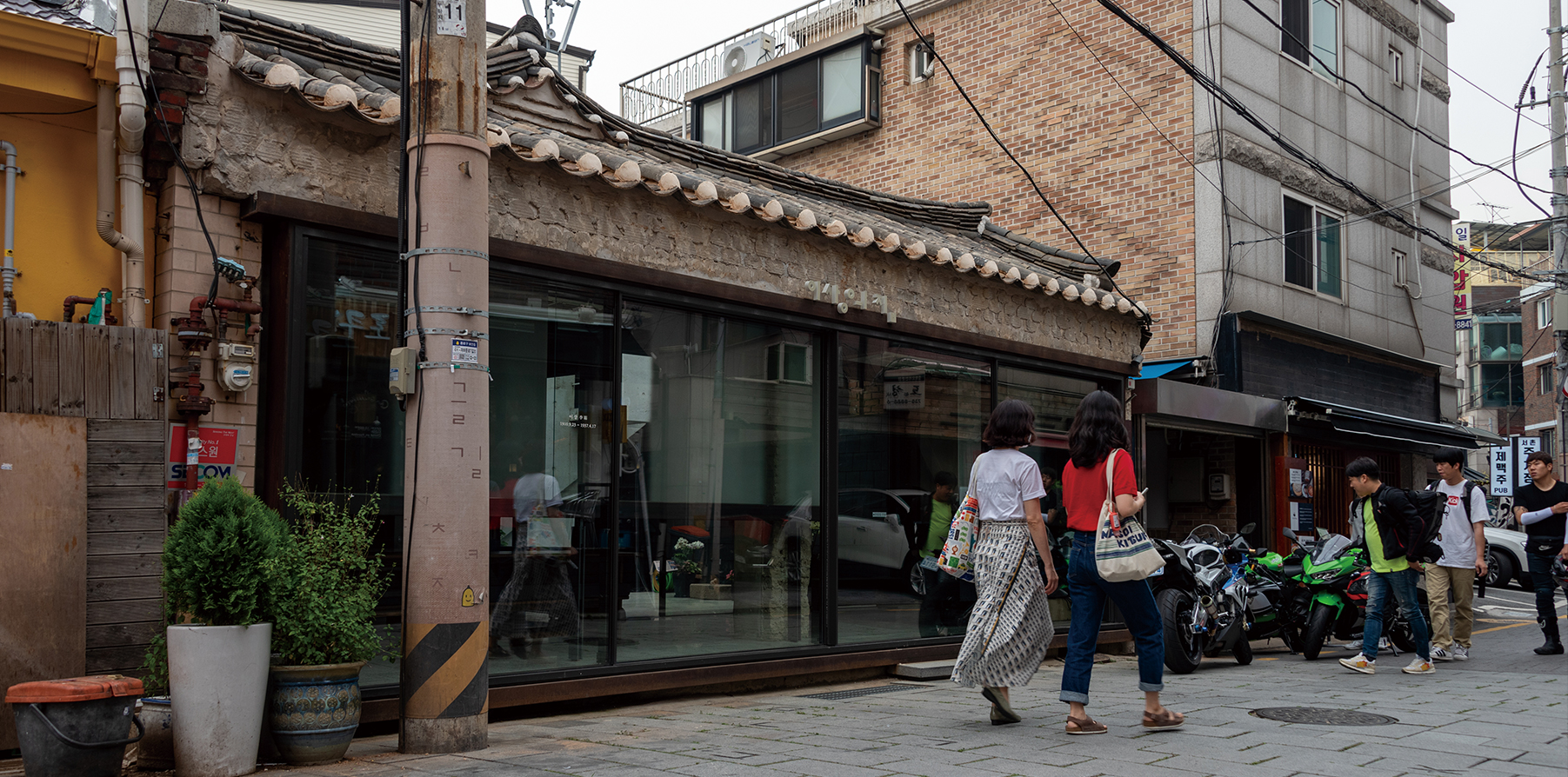
© Robert Koehler
House of Yi Sang
Another of Korea’s most respected modern writers, Yi Sang, also lived a short life (1910-37) during Japanese colonial rule of Korea. His works ranged widely from poetry to fiction and essays, and are widely taught whether in schools or among literati. One of Korea’s most prestigious literary awards is named after him.
In one of Seoul’s oldest (and now antique) neighborhoods, Seochon, the House of Yi Sang is situated on a plot of land occupied by the writer for most of his short life. The house is a Hanok (traditional architecture) reconstruction for exhibiting and archiving his works (reconstructed in 2011 and renovated from 2013-14). On display are illustrations, handwritten correspondence and writing by Yi arranged in chronological order.
The house is open daily between 10 a.m. and 6 p.m. (except for a lunch break from noon to 1 p.m.). It is closed on holidays and admission is free.
- 18, Jahamun-ro 7-gil, / 154-10 Cheongunhyoja-dong, Jongno-gu, Seoul
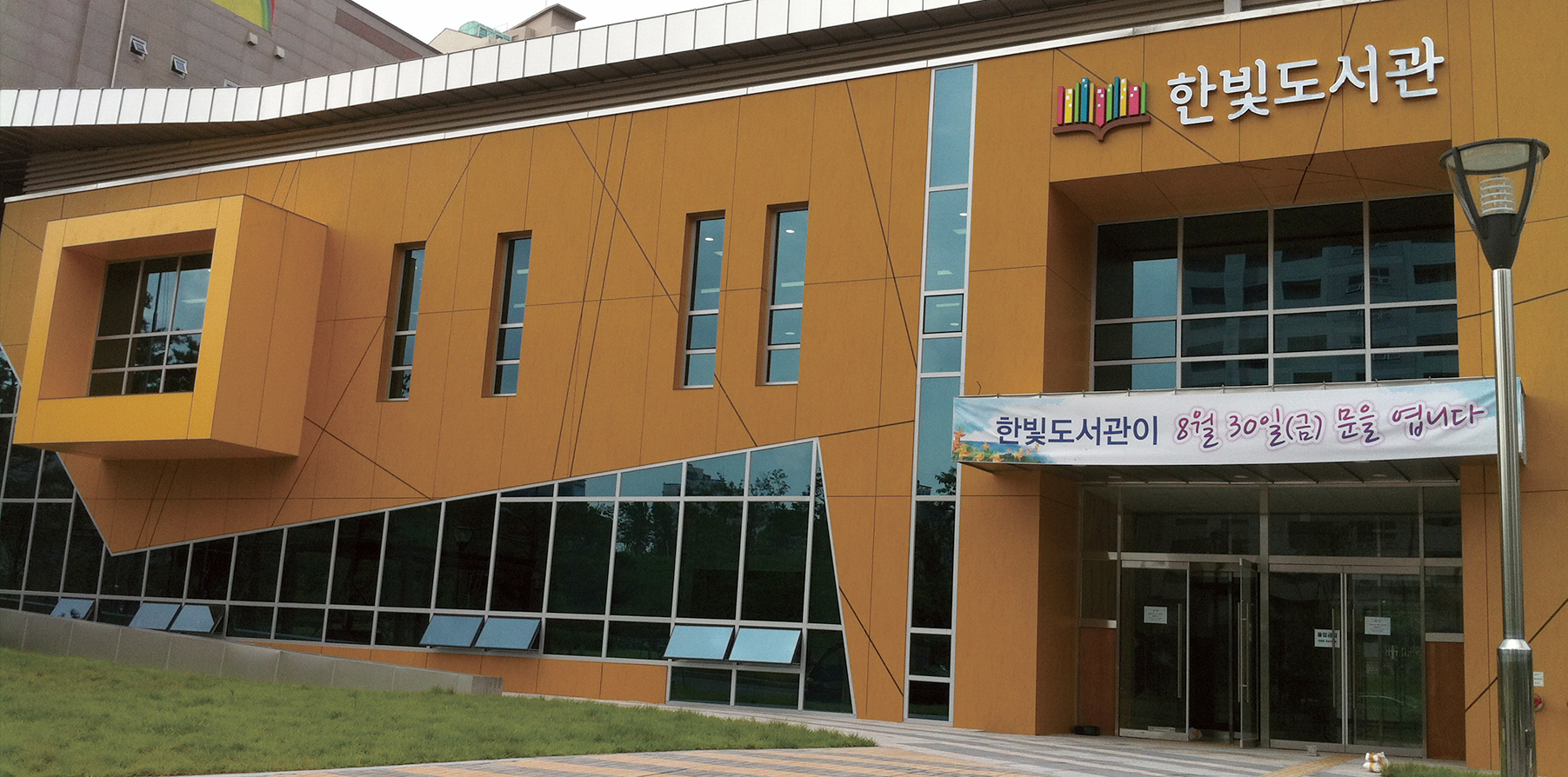
© Paju Hanbit Library
Paju Hanbit Library
With 18%-25% of its 25,000+ texts in English, Hanbit Library is an English-language treasure trove optimized for a range of age groups and demographics. The children’s section is on the first floor and cultural education and multipurpose rooms on the second, plus a basement floor. The library is but one of many reading spaces in Paju, Gyeonggi-do Province, which is an official “book city” planned since the 1980s and built from the 90s.
Paju is a suburb dedicated to virtually all stages of a book’s life from printing, publishing and distribution to consumption. Besides publishing offices and book-themed rest areas, many municipal initiatives like projects and festivals offer a wealth of books both to publishers and readers.
The library is open daily from 9 a.m. except select Mondays and national holidays. Closing hours vary by section and time of the year.
- 94 Waseoksunhwan-ro, Yadang-dong, Paju, Gyeonggi-do Province
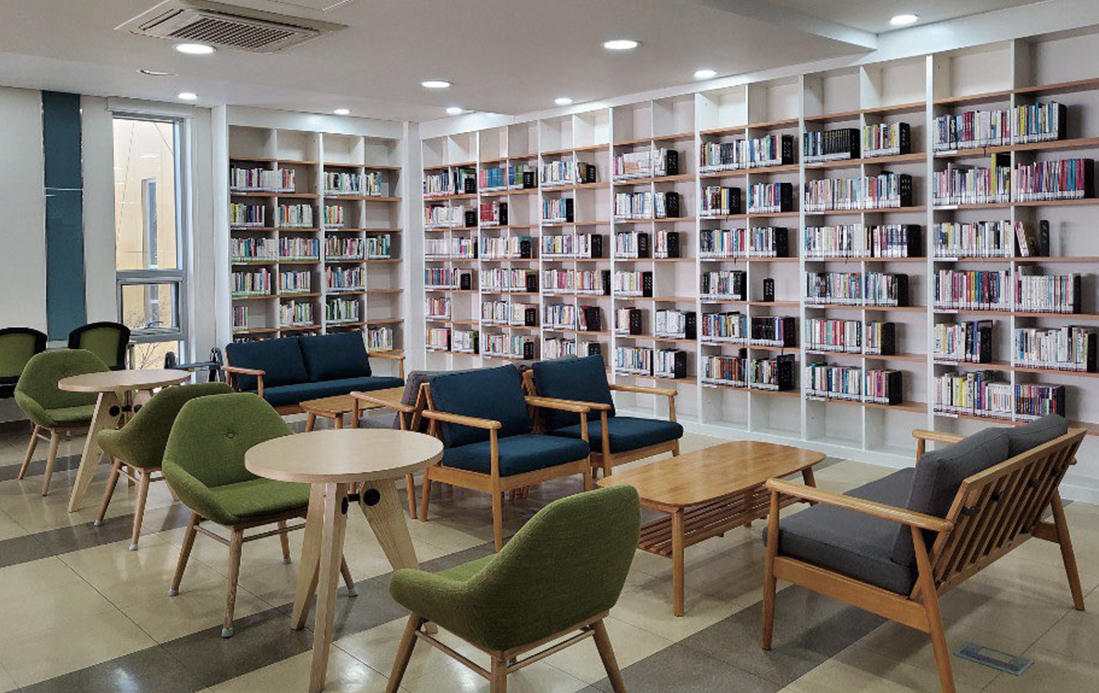
© Paju Hanbit Library
Other Articles
-

Story Underrated Anniversary
-

Interview Ra Tae Joo
-

Trends Universal Empathy
-

Spotlight Pen-etrating Prose
-

Travel Remote Rewards
-

Flavor So-tteok so-tteok
-

Culture Vulture 3 Books That Changed Korea
-

Current Korea Resolute Action amid Crisis
-

Global Korea Online K-pop Lessons
-

While in Korea Enjoying Korean Food as a Vegan
 Webzine
© KOCIS. All rights reserved.
Webzine
© KOCIS. All rights reserved.
